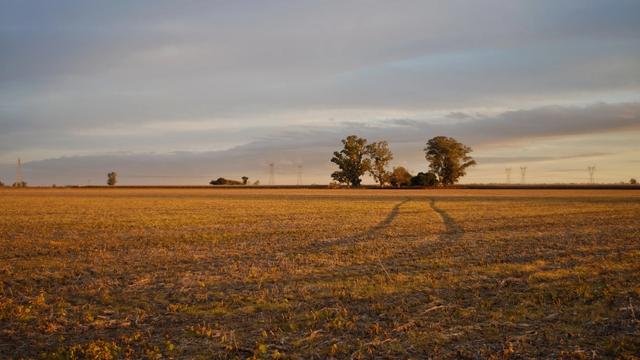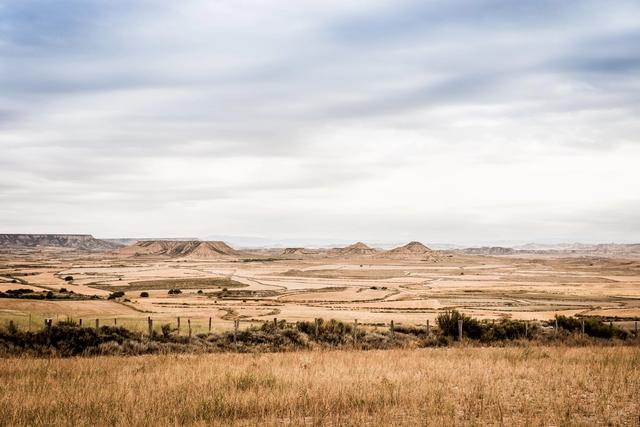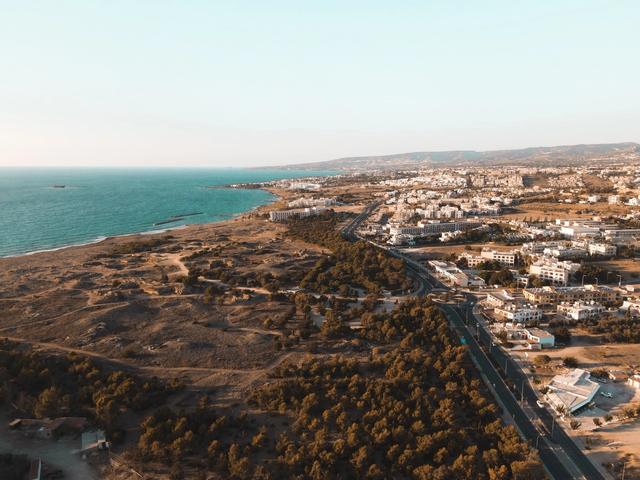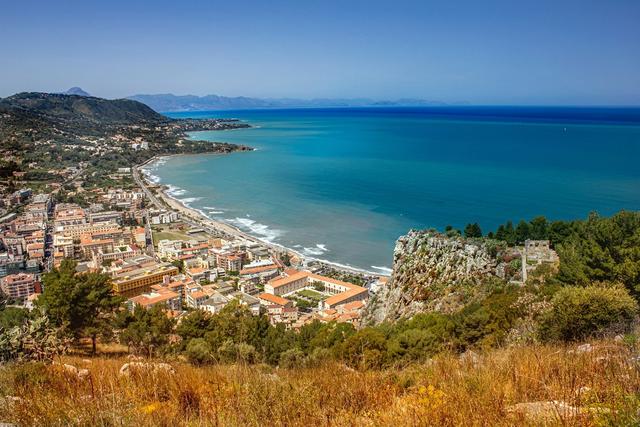
Your Guide to Successfully Buying Land Overseas
Many of us while away the time imagining our perfect overseas home, where everything fits together just how we want it - but the reality can be very different. Property buyers are often forced to compromise on the contents of their must-have list in the pursuit of a property that matches the one in their head.

There is a way to overcome this and make your dream a reality: if you build your home from scratch, you can create it just as you imagine without making sacrifices. Whether you want your property to look across glittering seas, be surrounded by charming vineyards or set against the backdrop of soaring mountains, you must find the right plot of land to build on.
If you’re considering buying land to develop overseas, you must be aware that the legal system and steps to follow may be very different from the UK - but it doesn’t have to be more difficult.
We aim to provide you with information that will help you secure the land to build your ideal property overseas safely and successfully.
Find the right location
We all have an instinct for what constitutes an appealing property, but comparing plots of land is less straightforward. You will need to consider factors like road access, land categorisation and planning laws.
According to Lance Nelson from Jet2Let, a specialist agent that sells land in Bulgaria and Turkey, you should: “Look for areas where the infrastructure is improving, where big developers are heading and where new developments are well-regulated,”
Identify the reason for building your property before you buy the land: holiday home, retirement home, emigration, buy to holiday let or pure investment - because different locations will tick different boxes. For example, for your retirement, you might want an expat community on your doorstep and all the amenities and social opportunities it offers. Whatever the reason for your purchase, check out the location at different times of the year - some places are bustling during summer but deserted in winter.
Establish your budget
The next step on your land buying journey is to define your budget before heading out for a viewing trip to your chosen destination. When planning your land-buying budget, don’t overlook the additional costs that will arise during the buying process, such as legal fees, taxes, the cost of professional guidance, disbursements and the cost of transferring your money overseas. A general rule is to add at least 10% on top of the purchase price.

Assemble your team of experts
There is much to consider when buying land overseas, including technical elements such as legal and financial regulations. Therefore, it is important to engage the services of trusted professional experts who possess the knowledge and experience that’s required to provide you with the right information when you need it - setting you on the path to purchasing land successfully and safely overseas.
- An estate agent to help you find the best possible plot of land to build on in the right location.
- A lawyer to help you navigate local planning laws, which don’t just vary depending on the country; they can differ from region to region as well.
- A currency specialist to protect your budget from being eroded by currency risk.
Understand the rules and regulations
In many countries, land tends to be cheap and the associated costs of developing property are also fairly low - especially compared to the UK. However, different rules and regulations can trigger a bout of serious head-scratching - especially when there’s a language barrier. Here’s an overview of some of the planning considerations in popular destinations that your lawyer and estate agent can help you to get to grips with:
Spain
Like the UK’s brownfield, greenfield and green belt development classifications, Spain has urbano (urban) and rustico (rural) areas. Rustico land is similar to UK green belt land, meaning it’s difficult to get planning permission to build. Land in rural regions is sometimes classified urbano, particularly at the edge of villages or where it has been given development permissions.
France
Estate agents (agents immobiliers) will typically identify whether plots of land for sale in France are suitable for building and if they come with permission to build (certificat d’urbanisme). Before starting work on your property, you will need to apply for a building permit for the type of home you have in mind (permis de construire).

Italy
To build on land in Italy, it must be considered a potential building area by the local council offices (Comune) on their general plan (pluto piano regolatore generale). The process of purchasing land to build on (terreno edificabile) is, therefore, governed by rules established by the planning office of the Comune. They regulate what can be built, where it can be built, its size and how it’s built.
Portugal
When searching for a piece of land to develop in Portugal, visit the local town hall (camara municipal) and cast a close eye over the licença de utilização, which will show how the land is categorised - avoid land deemed as “protected.” Land categorised as “agroforest” is probably off-limits too. Land that’s categorised as “rustic” or “urban” will give you the best chance of realising your dream.
Choosing a currency specialist
Choosing a currency specialist is just as important as finding an estate agent to help you find you your perfect plot of land, and sourcing a good lawyer to ensure your purchase is legally sound. This is because there's another big risk when buying land overseas: currency market movements.
Currencies are traded around the clock - 24 hours a day. Therefore, the value of the pound against other currencies is constantly changing - not just daily but by the minute. Even slight fluctuations can make a big difference to the price of your land. From a deposit and estate agent fees to a lump sum for the final purchase, every transfer you make as part of the overseas buying process is exposed to currency risk - potentially costing more than it should and denting your budget. Or, in the worst-case scenario, causing the cost of your land to disappear out of reach.
The dynamic nature of exchange rates means agreeing to buy land at one price and paying for it weeks or months later involves a degree of risk. Between putting in an offer and paying, the price will be fixed in the currency of the country you are buying in - euros, dollars etc. - but constantly fluctuating in pounds.
In some instances, the impact of the political and economic variables that influence exchange rates can be severe - as has been proved in recent times. For example, in March 2022 the pound slumped to the lowest since December 2020 as traders flocked to the safe-haven dollar amid an escalation in the Ukraine war.
A currency company that specialises in high-value transactions such as overseas land and property purchases can work in partnership with you to solve these kinds of ongoing problems.
Clear Currency
Clear Currency specialises in helping clients who are buying land and properties overseas - or selling it - to save money when making international payments.
Converting large sums of money into another currency and transferring them overseas can be daunting and confusing. Aware of this, we use our knowledge and experience to cut through the jargon and give you a friendly and personal service.
We recognise that it’s impossible to accurately predict how exchange rates will perform; therefore, it’s prudent to plan for all eventualities. With this in mind, we will assign you a dedicated account manager who will work in partnership with you throughout the buying process. In addition to helping you benefit from quick, easy, reliable and secure transfers, they can help you mitigate the impact of currency risk on your budget.
For example, fluctuating exchange rates make it hard to judge how much you’ll pay at any one time; therefore, your account manager can help you execute a forward contract to secure the cost of your purchase. This allows you to lock in an exchange rate for a date in the future, securing the price of your land when the time comes to pay.
Related Articles
How to Mitigate Foreign Exchange Risk
Currency risk can have a significant effect on the efficiency and profitability of any international business. Each exchange rate movement affects how much you receive from sales and what you pay to suppliers.
Read more
Moving to Dubai from the UK: Checklist
You’re ready for a new life overseas and have decided you’re moving to Dubai. Now it’s time to consider the various costs involved, from your visa and accommodation, to health insurance, shipping your belongings and bringing your beloved pets along too.
Read more
Currency Outlook Quarter 1 2023
Clear Currency looks back at the performance of the US dollar, euro and sterling in Q4 2022, and assesses what might be in store for Q1 2023.
Read more


